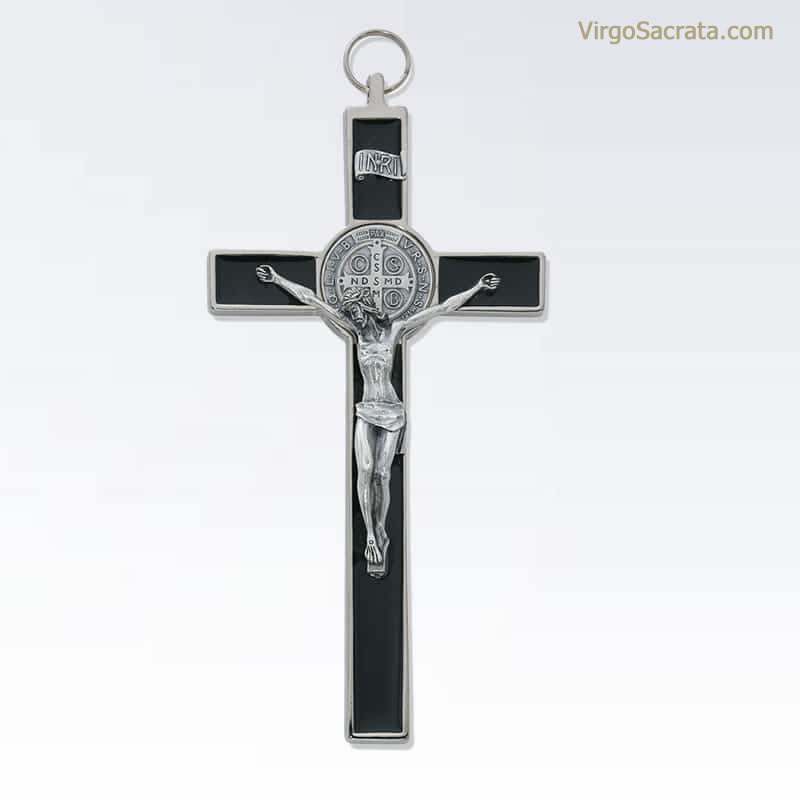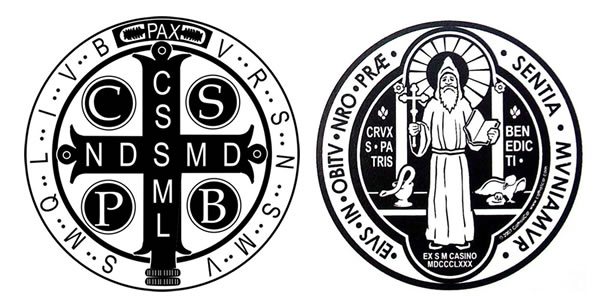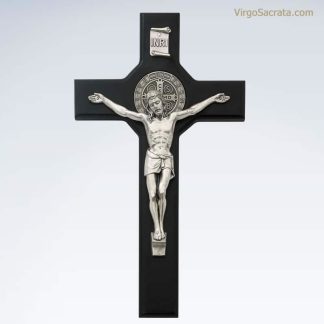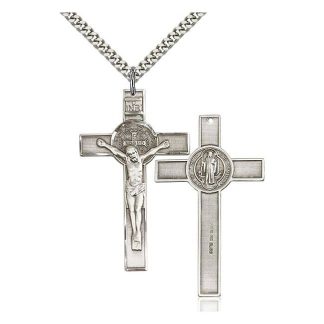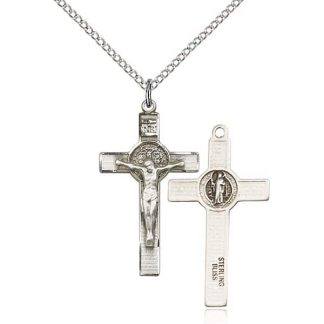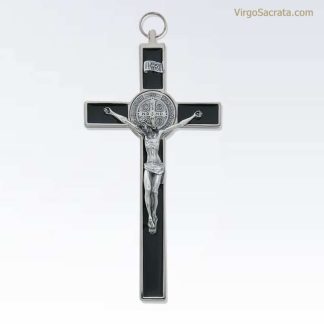THE POWER AND EFFECTS OF THE ST BENEDICT CROSS
The Cross of St. Benedict is very powerful to ward off all dangers of body and soul coming from the evil spirit. Saint Benedict used the Cross to dispel evil and exorcise demons. The cross of St Benedict is still the most used instrument used by exorcists to set the victims of demons free. Missionaries in pagan lands use this Medal with so great effect that it has been given the remarkable name, “The devil-chasing Medal.”
The Saint Benedict Cross is a constant reminder for Christians to reject evil temptations, strive to perform good works, exercise true charity and justice toward all. It is a reminder of Jesus calling to take up our Cross and follow him on the path of love, compassion and unity. To follow the “true King, Christ our Lord” and not the lord of culture and convention. To be on the side of justice and bring forth the Kingdom of God. The Medal Cross of St. Benedict must be blessed by a Benedictine Father, or by a priest especially authorized.
The St Benedict Cross, therefore, a powerful means:
- To destroy witchcraft and all other diabolical influences.
- To keep away the spells of magicians, of wicked and evil-minded persons.
- To impart protection to persons tempted, deluded or tormented by evil spirits.
- To obtain the conversion of sinners, especially when they are in danger of death.
- To serve as an armor in temptations against holy purity.
- To destroy the effects of poison.
- To secure a timely and healthy birth for children.
- To afford protection against storms and lightning.
- To serve as an efficacious remedy for bodily afflictions and a means of protection against contagious diseases.
- Finally, the medal of St-Benedict has often been used with admirable effect even for animals infected with plague or other maladies, and for fields when invaded by harmful insects.
The Meaning of St Benedict Cross-Medal Inscriptions
On one side, the Medal has a cross, the sign of our redemption, the protecting shield given us by God to ward off the fiery arrows of the evil spirit. At the top of the cross usually stands the word PAX (peace) or the monogram I H S (Jesus).
In the angles of the cross are found these four letters: C.S.P.B. They stand for the words: Crux Sancti Patris Benedicti – ” The Cross of the Holy Father Benedict.”
On the vertical bar of the cross itself are found the letters: C.S.S.M.L., and on the horizontal bar of the cross: N.D.S.M.D.
They signify:
| Crux Sacra Sit Mihi Lux, Non Draco Sit Mihi Dux |
May the holy Cross be my light, Let not the dragon be my guide. |
Round the margin of the Medal, beginning at the right hand on top, we have the following letters: V.R.S.N.S.M.V.–S.M.Q.L.I.V.B.
They stand for the verses:
| Vade Retro, Satana! Nunquam Suade Mihi Vana. Sunt Mala Quae Libas Ipse Venena Bibas. |
Begone, Satan! Suggest not vain things to me. Evil is the cup thou offerest; Drink thou thine own poison. |
The reverse of the Medal bears the image of St. Benedict holding in his right hand the Cross, in the power of which he wrought so many miracles, and in his left hand bearing the holy Rule, which leads all its followers by the way of the Cross to eternal light.
On a pedestal to the right of St. Benedict is the poisoned cup, shattered when he made the sign of the cross over it. On a pedestal to the left is a raven about to carry away a loaf of poisoned bread that a jealous enemy had sent to St. Benedict. Above the cup and the raven are the Latin words: Crux S-Patris Benedicti. [The initials C.S.P.B. are found on the reverse side – see above.]
Round the margin is the inscription: Eius in obitu nostro praesentia muniamur – “May his presence protect us in the hour of our death.”
Below St. Benedict we read: ex SM Casino MDCCCLXXX (from holy Monte Cassino, 1880).

